Iran Leaves IPU Meeting To Show Support For Hamas
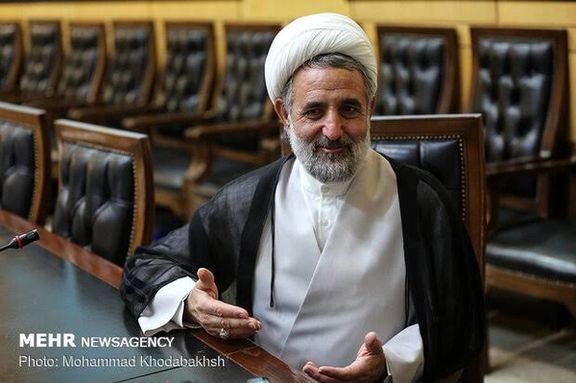
A parliamentary delegation from Iran left the opening ceremony of the Inter-Parliamentary Union after an anti-Hamas speech made by the union president.

A parliamentary delegation from Iran left the opening ceremony of the Inter-Parliamentary Union after an anti-Hamas speech made by the union president.
The delegation, led by Mojtaba Zonnour, the deputy speaker of the parliament, attended the 147th session of the Inter-Parliamentary Union for the first time, with participants from over 120 countries.
Zonnour, a hardliner, previously served as the Supreme Leader's Deputy Representative to the Islamic Revolutionary Guard Corps (IRGC) and chaired the Nuclear Subcommittee of the National Security and Foreign Policy Committee in the Islamic Consultative Assembly until 2019.
At the beginning of the session, Duarte Pacheco, the President of the Inter-Parliamentary Union, delivered a speech in which he advocated the right of Israelis to defend themselves in recent events and referred to Palestinian groups as "terrorists." Following his statements, the Iranian parliamentary delegation left the opening ceremony in protest.
Designated as a State Sponsor of Terrorism in 1984, Iran continues its support for terrorist-related activities, including support for Hezbollah, Palestinian terror-designated groups in Gaza, and various militant groups in Iraq, Syria, Bahrain, and elsewhere throughout the Middle East.
Israel has vowed to wipe out the Hamas Islamist group that rules Gaza, after its gunmen burst through the barrier fence surrounding the enclave on October 7 and rampaged through Israeli towns and kibbutzes, killing 1,400 people.
Israel has since pounded Gaza from the air, imposed a siege and is preparing for a ground offensive. Palestinian authorities say around 5,000 people have been killed in the enclave. The UN says more than a million have been made homeless.
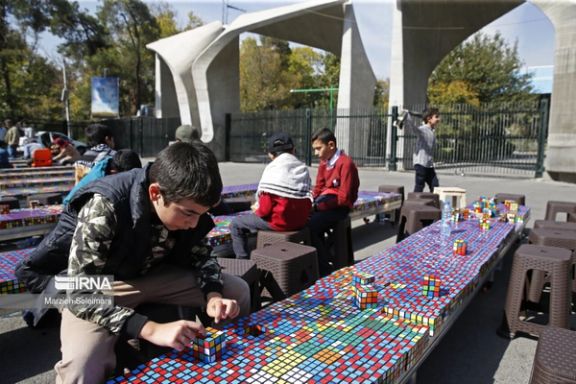
Four decades of propaganda by the Islamic Republic to garner support for its anti-Israeli campaign seems to have backfired as many Iranians want defeat for Hamas.
This heightened interest in the war's developments is driven by growing concerns about the potential for an escalation that could entangle Iran in a deadly conflict with Israel, and potentially even involve the United States.
The potential for escalation was revealed in remarks by US Secretary of State Antony Blinken who told the UN Security Council on Tuesday: "The United States does not seek conflict with Iran. We do not want this war to widen. But if Iran or its proxies attack US personnel anywhere, make no mistake: we will defend our people, we will defend our security -- swiftly and decisively."
Iranian lawmakers and military commanders have issued several threats to reassure the nation that they are in a strong position. However, these counter-threats have only served to heighten concerns about the uncertain future, especially if one of these threats were to materialize into military or terrorist actions.
Both in the actual world and on social media, Iranians have been showing strong opposition to the government's pro-Hamas and anti-Israeli narratives as well as unusually vocal support for Israel in the Gaza war. “Neither Gaza, nor Lebanon, I will sacrifice my life for Iran,” has been a popular slogan for protesters, students and even football fans.
However, pro-regime filmmaker Abolqasem Talebi even claimed this week that the slogan was created by Israel, ignoring the fact that it was first chanted several years before the Gaza war.
An article on the moderate news website Rouydad24 on Monday tried to discourage Iranians from chanting the slogan which is the lingering legacy of nationwide anti-government protests since 2018.
The article suggested that this "nationalistic" slogan had the potential to pave the way for "fascism." A brief examination of the website on Monday showed that it was part of a series of articles critical of patriotic and nationalist sentiments, which share significant similarities in the Persian language.
The website's concern about the slogan and its preaching that Iranians "must not chant any slogan they think will be helpful in their struggle against the government" has been particularly raised after spectators at Iranian stadiums chanted the slogan when confronted with government propaganda about the Palestinian issue, especially when it was intended to express support for Hamas.
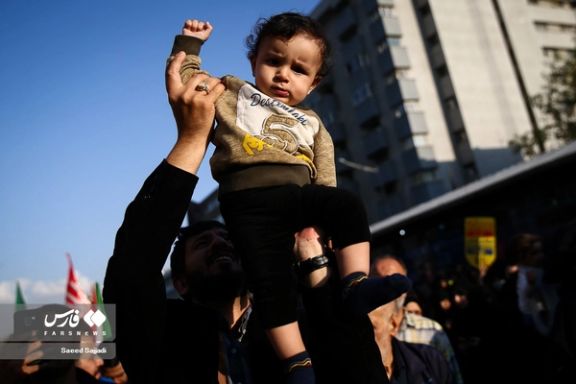
As the war in Gaza began, Iranians noticed brand new cars belonging to Palestinians who were leaving Gaza City in response to Israel's warning. Iranians shared images of these vehicles on social media, serving as a reminder that the government had been portraying Palestinians as impoverished for decades, all the while they were driving luxurious cars. This highlighted the stark contrast with Iranians who were struggling with high prices for poorly manufactured Iranian and Chinese vehicles.
In numerous videos from Gaza, Iranians also observed that Palestinians were living in homes and new apartment buildings that were much better than those in Iran.
Then came the news on social media about Hamas fighter being paid between $400 to $600 per month by the Iranian government, while current wages in Iran barely reach $200. The news may or may not be true, but given the current circumstances and the lack of fair and transparent information in Iranian media, people tend to believe even rumors.
The last blow came, once again on social media, and on satellite television, as footages showed Hamas Leader Ziad Nakhaleh shunning Shiism and telling Palestinians: "You can be a Shiite, but in this case you need to leave Hamas."
In recent weeks, Iranian stadiums have been venues for various anti-Hamas and anti-Palestinian incidents, as the government and its media often conflate Hamas with all of Palestine. Spectators at these events initially chanted disrespectful slogans when Palestinian flags were displayed in the stadium. In another instance, they created a disturbance by shouting and whistling when the loudspeakers called for a minute of silence to honor Palestinian "martyrs."
Meanwhile, numerous instances of Iranians expressing support for Israel have emerged on social media. Podcaster Sadegh Rohani pointed out in a tweet: "Israel has never been as popular in Iran as it is now. Even if there were Israel supporters before, they were not as outspoken as they are today."
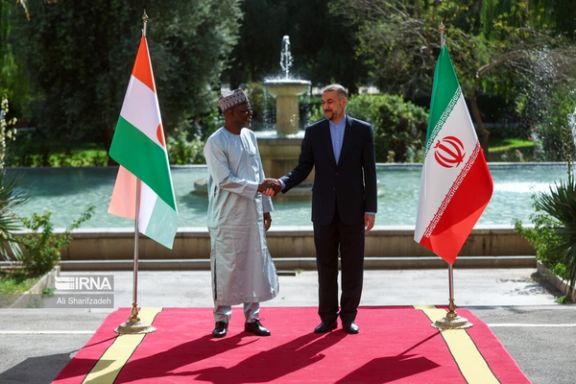
As Niger's Foreign Minister is in Tehran, the European Union has introduced sanctions targeting individuals and entities linked to the military junta that seized power in July.
Foreign policy chief Josep Borrell said, "The EU has from the very beginning condemned the coup d'état in Niger in the strongest terms."
The newly established framework empowers the EU to impose sanctions on those responsible for actions that it deems 'jeopardize Niger's peace, stability, and security, undermine its constitutional order, or involve severe violations of human rights and international humanitarian law'. In doing so, the EU seeks to align and reinforce the actions taken by the West African regional organization ECOWAS.
Bakary Yaou Sangare, the Foreign Minister of Niger's military government, was also in Tehran. On Monday, he met with Hossein Amir-Abdollahian, Iran's Foreign Minister.
State news agency IRNA described the ousted Nigerien president, Mohamed Bazoum, as being aligned with the West and noted that he was removed from office by the National Council for the Safeguard of the Homeland.
The junta in Niger opposes the presence of French forces in Africa and aligns itself with Russia. In September, Russian military officials made a visit to Africa, signaling Russia's efforts to bolster its role on the continent.
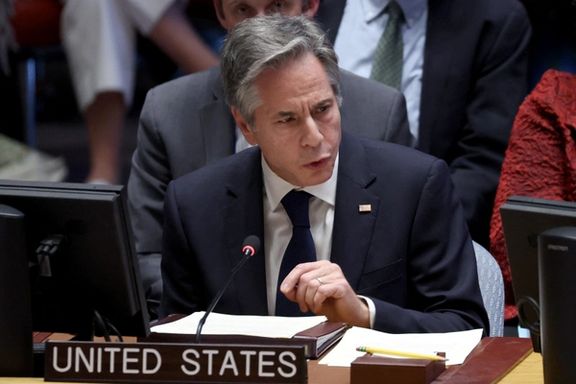
The United States said on Tuesday it does not seek conflict with Iran but warned that it would act decisively if Iran or its proxies attacks US personnel anywhere.
Secretary of State Antony Blinken who issued the warning spoke to the 15-member UN Security Council amid international fears the conflict between Israel and Iran-backed Palestinian Hamas militants in the Gaza Strip could spill over into a wider war, drawing in Lebanon's heavily armed Hezbollah that is also supported by Tehran.
"The United States does not seek conflict with Iran. We do not want this war to widen. But if Iran or its proxies attack US personnel anywhere, make no mistake: we will defend our people, we will defend our security - swiftly and decisively."
President Joe Biden on Monday ordered the Department of Defense to brace for more attacks by Iranian proxies and respond appropriately.
The US military is taking new steps to protect its troops in the Middle East as concerns mount about attacks by Iran-backed groups. The US has also sent warships and fighter aircraft to the region to try to deter Iran and Iran-backed groups, including two aircraft carriers.
Iran was due to address the Security Council meeting on the Middle East later Tuesday. The Iranian regime immediately congratulated Hamas on October 7 after its attack in southern Israel began and as news was emerging about a brutal massacre of civilians. Later, the government organized street celebration and officials have been issuing provocative statement in support of Hamas.
"We call on all member states to send a firm, united message to any state or non-state actor that is considering opening another front in this conflict against Israel or who may target Israel's partners, including the United States: don't. Don't throw fuel on the fire," Blinken said.
VIOLATIONS IN GAZA
UN Secretary-General Antonio Guterres pleaded on Tuesday for civilians to be protected in the war between Israel and Palestinian Hamas militants, voicing concern about "clear violations of international humanitarian law" in the Gaza Strip.
More than 700 Palestinians were killed in overnight Israeli air strikes, Gaza's health ministry said, the highest 24-hour death toll since Israel began a bombing campaign to crush Hamas militants who stunned the country with a deadly Oct. 7 attack.
Guterres told the Security Council that at a "crucial moment like this," it was vital to be clear that war has rules, starting with the fundamental principle of respecting and protecting civilians.
"It is important to also recognize the attacks by Hamas did not happen in a vacuum. The Palestinian people have been subjected to 56 years of suffocating occupation," Guterres said.
"But the grievances of the Palestinian people cannot justify the appalling attacks by Hamas. And those appalling attacks cannot justify the collective punishment of the Palestinian people," he said.
Israel's UN Ambassador Gilad Erdan described Guterres' speech as "shocking." In a post on X, formerly known as Twitter, he called on Guterres to immediately resign, while Israel's visiting Foreign Minister Eli Cohen said that he would no longer meet with Guterres later on Tuesday as planned.
"I will not meet with the UN secretary-general. After October 7 there is no room for a balanced approach. Hamas must be erased from the world!" Cohen wrote.
With reporting by Reuters
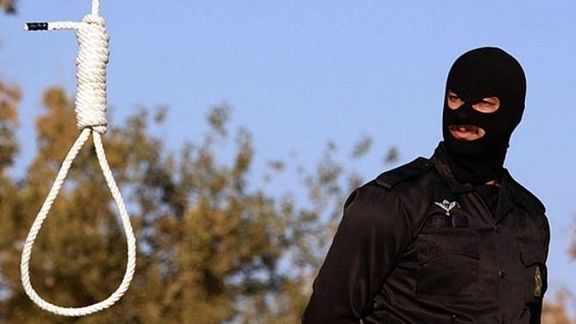
In the first three days of this week, Iran has executed at least seven individuals in prisons across the country.
Reports from the US-based Human Rights Activists News Agency News Agency (HRANA) indicate that the country has seen the execution of at least 59 people between September 23 to October 22.
The charges against the latest seven, as reported on websites including the Iran Human Rights Organization, HRANA, and Baluch Activists, primarily revolved around drug offenses.
The trend of executions on drug-related charges in Iran has been steadily increasing, with the first nine months of 2023 showing a nearly twofold rise compared to the same period last year.
On October 17, the Human Rights Organization of Iran reported the execution of a group of at least 10 men in Ghezel Hesar prison in Karaj, all on drug related charges.
According to reports, during the period from January 1 to October 10, Iran executed at least 534 people. Only 13% of the cases were officially announced. Around 57% of the executions were linked to charges related to drug offenses, an area in which Iran has some of the world's highest incidences.
Out of the 285 drug-related executions reported worldwide by the Harm Reduction International organization in 2022, 90% took place in Iran.

Iran continues to grapple with a growing shortage of nurses in a failing health system with as many as 35 patients per nurse at any one time.
An investigation conducted by the Donya-ye Eqtesad daily has revealed the ongoing crisis engulfing Iran in the aftermath of the COVID-19 pandemic. As waves of the virus subsided, many nurses were left unemployed. The shortage of both doctors and nurses risks the lives of patients in need of critical care.
In August, Abbas Ebadi, the Deputy Minister of Nursing at the Ministry of Health, reported a dire need for approximately 100,000 new nurses to mitigate the growing crisis. To put the current nurse shortage in perspective, Iran's total nursing workforce comprises 215,000 nurses, according to Ebadi.
Global healthcare guidelines suggest a nurse-to-patient ratio of approximately 2.5 for optimal care. However, Iran has only 0.8 nurses available for each hospital bed. In some regions, this ratio further plummets to 0.6, significantly deviating from international standards.
The nurse shortage is further compounded by factors such as retirements, resignations, and emigration, contributing to a dwindling nursing workforce. Shockingly, an average of five to six nurses leave the country daily, and on a monthly basis, approximately 100 to 150 nurses emigrate from Iran, further exacerbating the nurse shortage.